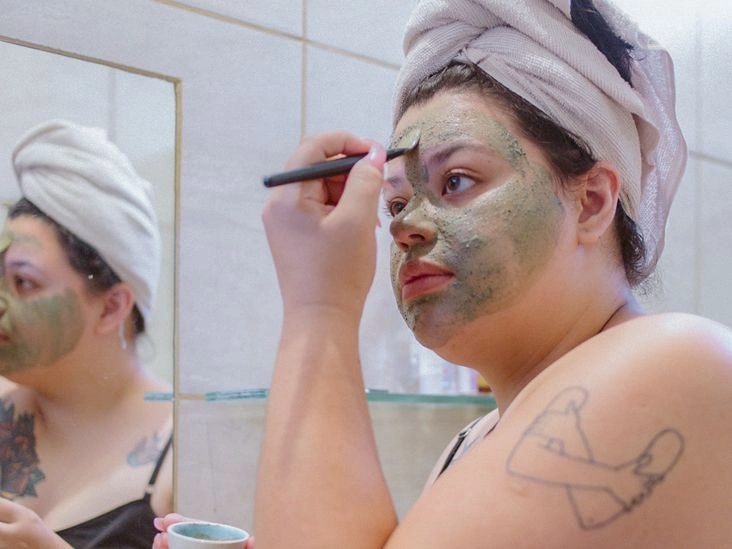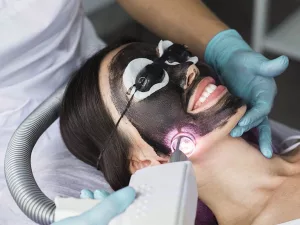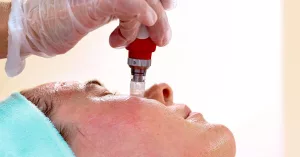Crafted from the gently steamed fresh leaves of the Camellia sinensis shrub, green tea has been utilized for therapeutic uses in parts of the world for millennia.
The advantages of green tea span from enhancing cognitive function to aiding weight management. But its benefits aren’t limited to internal health — green tea can also improve skin health, which is why it’s frequently included in many beauty formulations.
How does green tea help your skin?
Green tea offers a variety of healing qualities that can support skin health in multiple ways. Key benefits include the following.
1. Guards against skin cancer
Green tea is rich in polyphenols and contains six distinct catechins, with epigallocatechin gallate (EGCG) and epicatechin gallate (ECG) being the most potent. These substances act as antioxidants.
Antioxidants are molecules that neutralize free radicals in the body. Free radicals are reactive compounds that can damage your body and skin when they accumulate, causing cellular injury and contributing to diseases, including cancer.
According to research, the antioxidant effects of EGCG can assist in repairing DNA damage caused by ultraviolet (UV) radiation from the sun, thereby helping shield you from nonmelanoma skin cancers.
2. Combats premature aging
A 2003 study found that EGCG, an abundant antioxidant in green tea, can revive dying skin cells. By protecting and restoring cells, this antioxidant can counter aging signs and make lackluster skin appear healthier.
The vitamins present in green tea, notably vitamin B-2, can also help maintain a youthful appearance. Vitamin B-2 supports collagen preservation, which can enhance skin firmness.
3. Reduces redness and irritation
Green tea possesses notable anti-inflammatory effects due to its high polyphenol content.
These anti-inflammatory attributes can help diminish skin irritation, redness, and swelling. Applying green tea topically can also calm minor cuts and sunburns.
Because of its soothing effects, dermatologists have found topical green tea to be a beneficial treatment for various skin conditions. It can ease the irritation and itching from psoriasis, dermatitis, and rosacea, and may be useful in managing keloids.
4. Treats acne
The antioxidant, anti-inflammatory, and antimicrobial traits of green tea may make it an effective option for treating acne and oily skin.
Research indicates that the polyphenols in green tea, when applied to the skin, can reduce sebum production, a factor that contributes to acne.
These polyphenols also combat infections caused by bacteria. This suggests green tea can be helpful in controlling bacterial growth that leads to acne outbreaks.
5. Hydrates skin
Green tea contains several vitamins, including vitamin E, which is renowned for its skin-nourishing and moisturizing qualities.
In clinical testing, participants who applied a green tea extract formula to their forearms over 15 and 30 days experienced increased skin hydration and decreased skin roughness by the study’s end.
What do you need to make a green tea face mask?
Creating a homemade green tea face mask is straightforward. Many of the items you need are likely already in your kitchen.
To prepare one, gather the following:
- 1 tbsp. of green tea
- 1 tbsp. baking soda
- 1 tbsp. honey
- water (optional)
- a mixing bowl
- a measuring spoon
- a towel
What to look for in a store-bought green tea mask?
Ready-made green tea face masks are available at health and beauty outlets, pharmacies, and online.
Ingredients vary between products. When choosing a premade green tea facial mask, try to pick a product that is:
- suitable for all skin types
- made with 100 percent green tea
- free from dyes, fragrances, and parabens
Side effects of a green tea mask
Users of topical green tea report a low incidence of adverse effects. Still, if it’s your first time applying green tea to your face, perform a patch test on the inside of your elbow before using a full mask.
Symptoms of skin sensitivity or an allergic reaction include itching, redness, swelling, and a burning sensation.
If you have sensitive skin or known reactions to ingesting green tea, consult your dermatologist prior to using a green tea mask.
Other benefits of green tea
Drinking green tea or using green tea supplements can also produce numerous health benefits. Studies suggest green tea may:
- lower the risk of certain cancers, such as breast, prostate, and colon cancers
- boost metabolic rate, aiding fat burning
- decrease the risk of heart disease and stroke
- reduce the likelihood of developing type 2 diabetes
- support memory and cognitive function
Takeaway
Thanks to its antioxidant, anti-inflammatory, and antimicrobial effects, a green tea face mask can offer several advantages for your skin.
It may help prevent premature aging, shield against UV-related damage, calm redness and irritation, and inhibit bacteria that contribute to acne.
Making your own green tea face mask is simple and requires few ingredients. If you prefer convenience, a range of premade green tea masks is available online or at your local pharmacy.
If you’re uncertain whether a green tea face mask suits your skin, consult your physician or dermatologist before use.

























Leave a Reply
You must be logged in to post a comment.